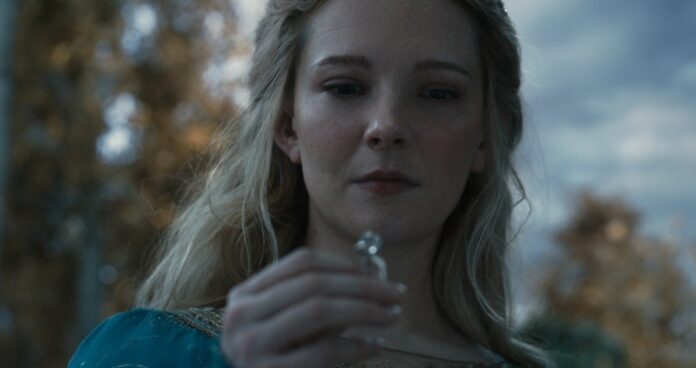Magic is not easy to portray in fantasy TV shows. There are plenty of reasons why the creators of Game of Thrones seemed so eager to eschew the most fantastical elements of that universe in their adaptation. It breaks the sense of grounded realism that recent versions of these shows are so fond of; it introduces extra complications into the story, like potential plot holes and new rules to explain; and most importantly, it’s just plain expensive – even for shows with budgets as big as The Rings of PowerSo it’s no surprise that Prime Video’s The Rings of Power seems equally reluctant to engage with the magic that fills the pages of Tolkien’s Lord of the Rings universe. But by hiding the magic of Middle-earth, the series does a disservice to its own plot—and to one of fantasy fiction’s greatest worlds.
Tolkien never took much time to explain the magic of Middle-earth. He described the mountains and rivers, the traditions and the delicacies, but when it came to magic, he never seemed to find anything to talk about. This came not from any unease about the place of magic in his world, but rather from a sense of deep comfort. Tolkien’s Elves don’t explain the many magics of Rivendell to Frodo in the same way that we don’t explain all the inner plumbing to our guests; magic is simply a fact of life in Middle-earth, too familiar to even talk about, but always fully present.
The Rings of Powerby contrast, is terrified of the magic that inhabits its world. It hands out magic as secrets, showing it briefly but then rushing past it, as if showing the trick for too long might ruin an illusion. Characters often react with shock or horror to supernatural occurrences, despite the fact that they should be more familiar with them than even characters in the original trilogy, but the show rarely makes it clear to the audience how we’re supposed to feel about magic of any kind.
Nowhere is the show’s reluctance to let magic rest comfortably more damaging than in the Rings of Power themselves, particularly the rings of the dwarves. In the short time we spent with King Durin after he received his ring, its corruption seemed almost instantaneous. The ring went from a helpful savior of Khazad-dûm to an object that Durin the Younger recognized as pure evil in an instant. There was no room for the ring’s magic to wash over the dwarves or King Durin, no time for the slow, seductive, unnatural power of evil to take root. Instead of the complicated morals that permeate Tolkien’s original stories, such as the corrosion that accepting minor evils can have on a civilization, or how weak rulers can be seduced by the promise of restored glory no matter the cost, Rings of PowerHuman morality is simplified to something akin to watching a child touch a stove: a misplaced impulse with an immediate and obvious consequence.
And the rings aren’t the only magical thing in Rings of Power that’s a shortcoming. Virtually every mystical element of the show suffers from the same problem.
Tom Bombadil feels decidedly normal, and his highly questionable mentoring of Gandalf (or “the Stranger”) in the ways of magic is relegated to a passing mention. We saw a nice display of moth magic from the Easterlings, but we never went back and are given absolutely no context for what to make of the person who appeared out of nowhere, or the evil bearded wizard who seemed to be in charge.
All of this isn’t to say that the show should take the time to explain every single one of these elements to us. But when the show skips over the mystical elements and only addresses them when they’re relevant to the plot, it diminishes our understanding of the world. Background scenes of magic, or little flashes of it here and there, could give the audience insight into how our characters live their daily lives in Middle-earth, but instead magic is kept mysterious for reasons that seem to be dictated more by the plot than the world it’s set in. If we, the audience, barely understand magic in this world and rarely see it, then the show doesn’t have to do the legwork to prove to us why things like the Rings of Power might be bad, or why the people of Númenor would recoil at the idea of using an Elvish-made palantír, even when there’s no canonical reason for their confusion. It’s a simple shortcut that makes the entire world of the show so much poorer by its omission.
Magic is fundamental to Tolkien’s Middle-earth. It moves and shapes the major events of the series, but it also slips by unnoticed in the daily lives of nearly every character in the story. The important thing about all of this is that magic is present, it has its own space to live and breathe in the lore of The Lord of the Rings, all in the service of our understanding of what it means when Sauron uses his own corrupt and evil version. Instead, by relegating magic to a brief aside to the otherwise grounded drama of the show, The Rings of Power shrinks Tolkien’s world, making the heroes less heroic and the villains less evil, and the whole story a little more boring.



